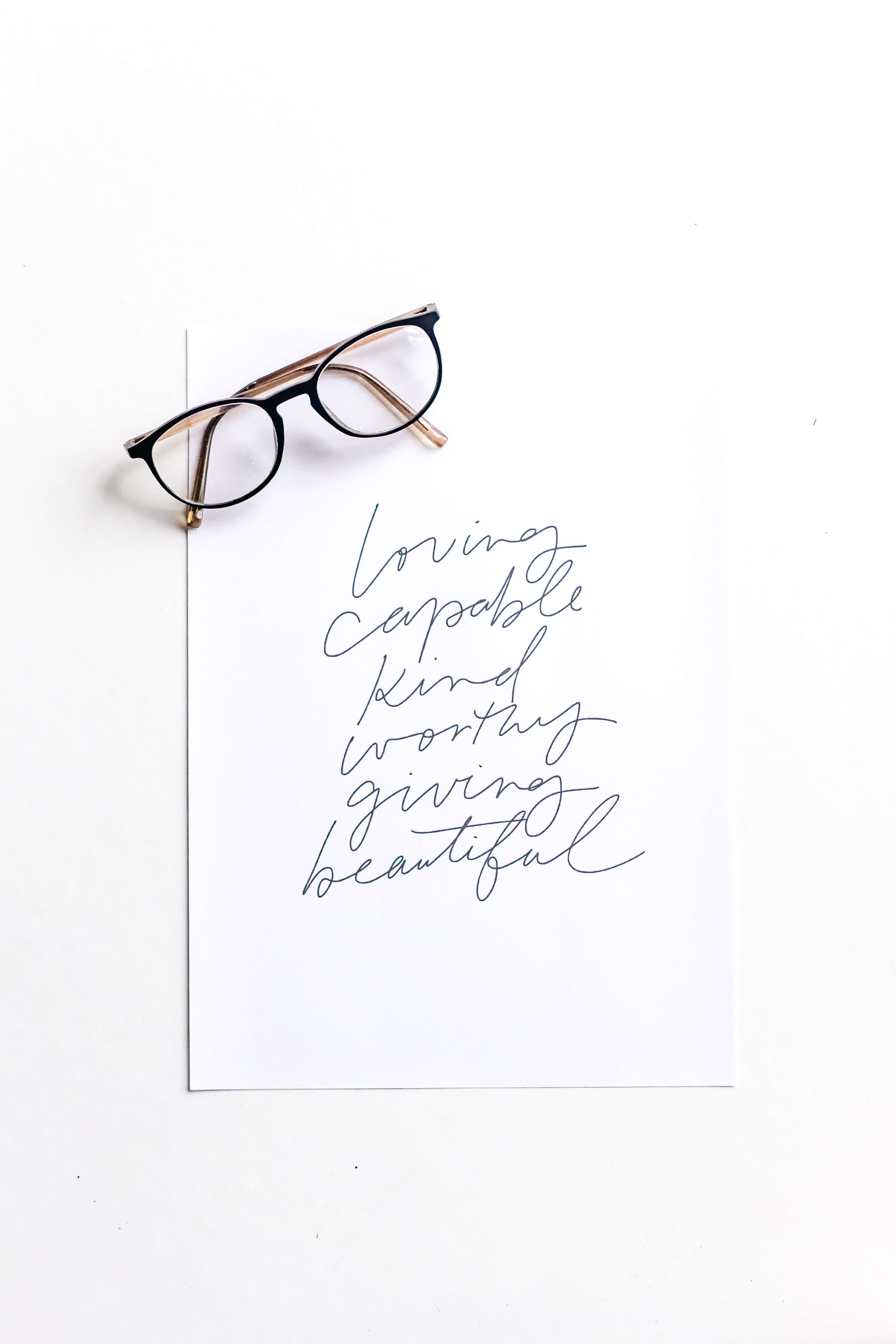A client had been talking aloud about how she kept finding herself wanting to step in and help people. Suddenly, she paused, then she said “I think my self worth is tied to recognition” then, she went silent. I could see the processing happening as the lightbulb went off in her mind. I love these moments! We weren’t even talking about measuring self-worth and yet, up it came, when she was ready to see it.
What is self-worth?
Self-worth is defined by Merriam-Webster as:
“a feeling that you are a good person who deserves to be treated with respect”.
I have talked about self-worth before, concluding that it means believing that you’re fundamentally worthy as a person. In that article I discussed the relationship with self-esteem – they are often interchangeably used as descriptions but I believe they are subtly different. I believe self-worth is external – and is related to how much value we believe we add to the world. Self-esteem, for me, is how much you value yourself; it’s internal. So you can love and value yourself (high self-esteem) but feel that others don’t love/respect/value you (low self-worth).
Dr. Christina Hibbert explains this:
“Self-esteem is what we think and feel and believe about ourselves. Self-worth is recognizing ‘I am greater than all of those things.’ It is a deep knowing that I am of value, that I am loveable, necessary to this life, and of incomprehensible worth.”
To summarise in one sentence: self-worth is believing that you’re fundamentally worthy, whereas self-esteem is feeling good, or confident, about yourself.
What affects your self-worth?
Our self-worth is generally believed to be developed in childhood through a variety of causes, including:
- How we were treated by those around us
- Stressful events
- Trauma
When we are growing up we take what others say about us to be true, so if we are told we are lazy, worthless etc then we will believe it. Self-worth is the foundation on which self-esteem is built. So, for example, if we were only noticed when we achieved something brilliant, then we might believe that we only add value when we are achieving (self-worth) and if we don’t achieve, then we might feel like a failure (self-esteem).
If we have a strong foundation of self-worth then we are more able to fully thrive in our work, relationships, and other life endeavours. Despite what society likes to tell us, weight loss, engagement rings, and becoming the CEO of your company aren’t what makes us worthy. Such things just don’t have that power in the long-term.
In fact, it is because we are worthy that we’re able to accomplish and enjoy such wonderful things. And when we believe we’re worthy, we bring more of our light into the world.
Measuring your self-worth
For most of us we are used to measuring our self-worth on looks, success, money in the bank etc but when those things fluctuate, so often does our self-worth (and self-esteem). What if there were different ways of measuring your self-worth?
- Recognise the difference that you make to others (consider your values, skills and knowledge)
- See the power as equal (so you are a peer to others, not above/below them)
- Set your boundaries in line with your values
- Engage in fulfilling activities
- Believe and like who you are (this is the big one! – you may need to challenge your limiting beliefs here)
- Know yourself and be yourself (behave according to your values)
How to deepen your self-worth
Notice when you are seeking external validation
Almost always, when we look at it in detail, we seek external validation because we are scared. Most commonly we are afraid we are not enough as we are. By observing when this happens we can notice if it is fear talking or if there is a gap in our knowledge/behaviour. Most of the time, it’s fear talking so don’t give it any power.
Take some time for self-care
I wonder if self-love would describe this better but either way, it’s the time we take to give ourselves attention. So often we give more to others, leaving ourselves empty. This is when we need someone to notice, to care for us. This is usually the time we don’t ask for help too! Ideally, tell someone but also, ensure you fill your own cup too.
Be open to the fact that you are worthy
You might not have a whole lot of self-worth today, that’s OK. It doesn’t mean you never will. Here you are, reading this – doing the work. So, I encourage you to believe that you are capable of being worthy. Otherwise, what’s the point? Whilst I am asking you to do that, I would also like to say – you already are worthy, or at least I believe you are. Everyone is worthy of being loved, respected and being successful in whatever they choose to do. You are enough, just as you are.
Choose kindness
When we are feeling unworthy we are often comparing ourselves to others and/or believing the negative voice in our heads. The antidote is kindness, put yourself in your best friend’s shoes and ask what they would say to you…or ask them yourself! You can extend this kindness to others too. Everybody has a gift or calling in this world. In fact, each of us has many different abilities that help others. Focus on yours. If you don’t know what your abilities are, start small. What small things are you good at? What do you enjoy? In what ways do you make other people’s lives better? Celebrate these; they are the very things that make us feel worthy.


5 thoughts on “Measuring your self-worth”